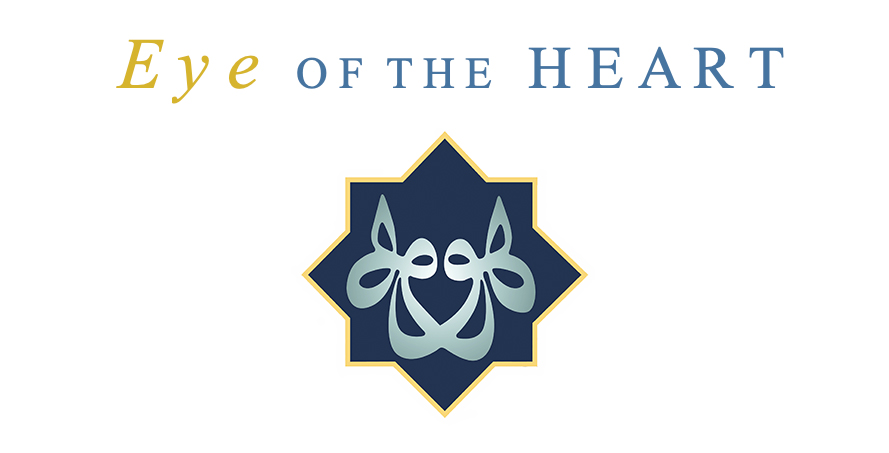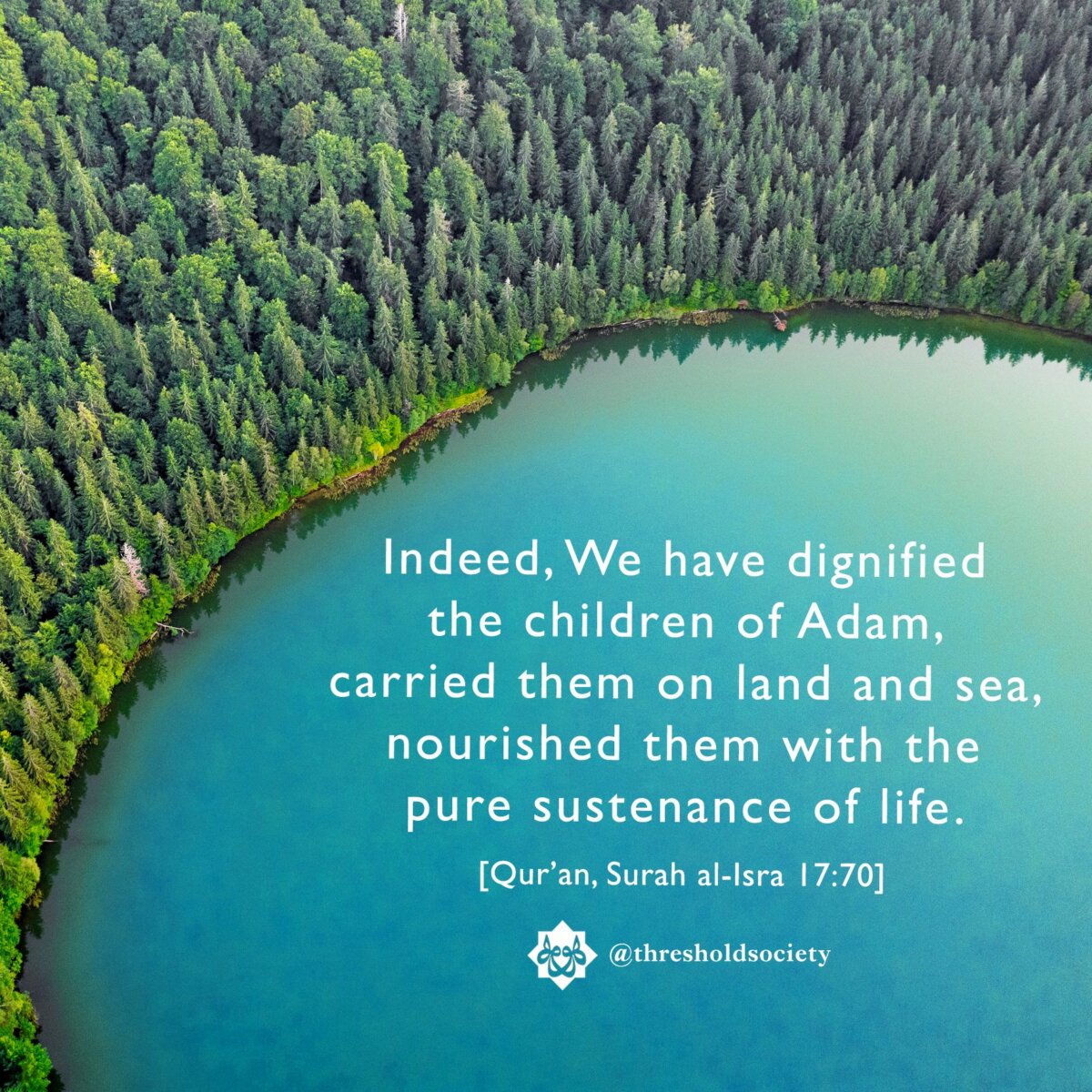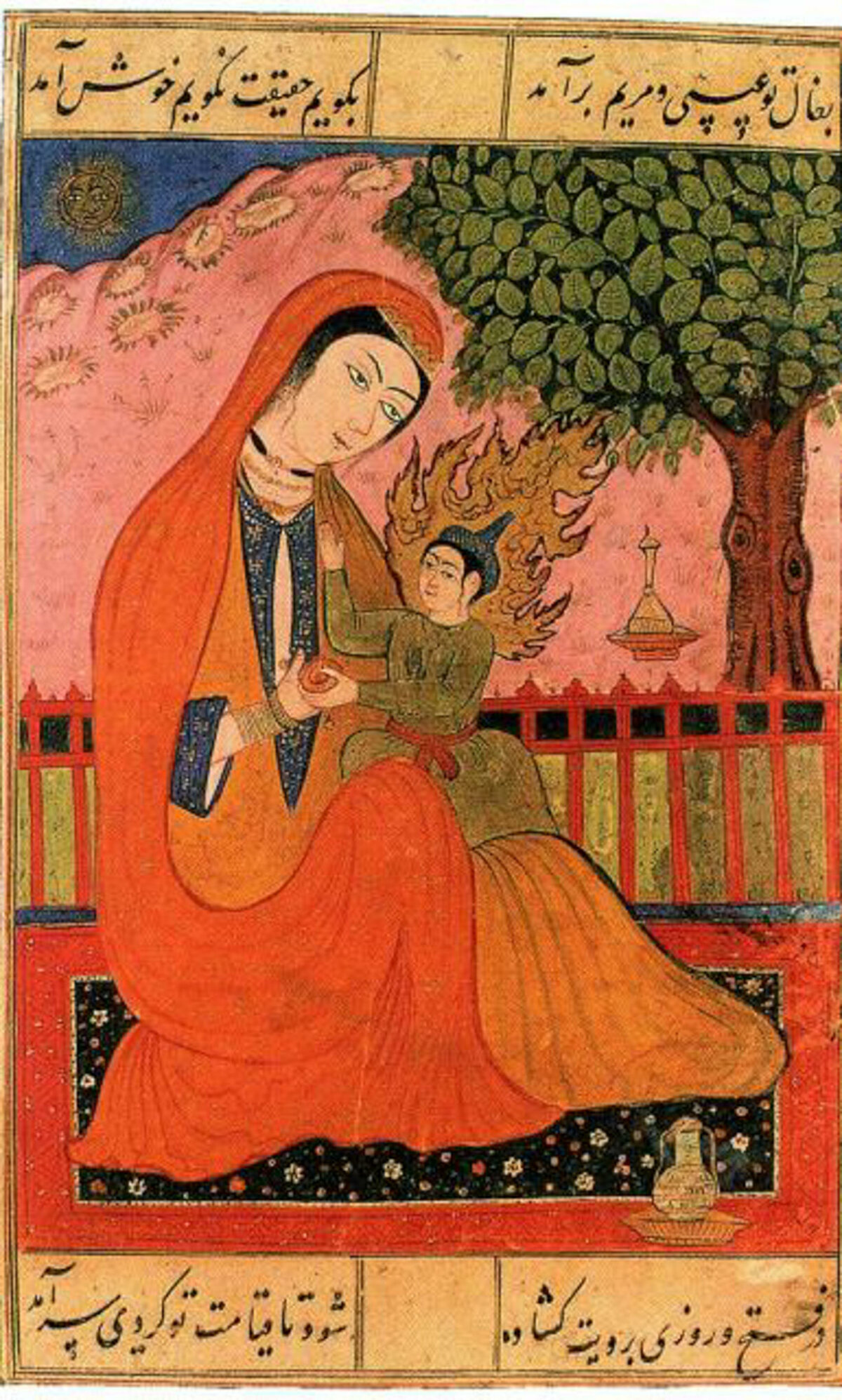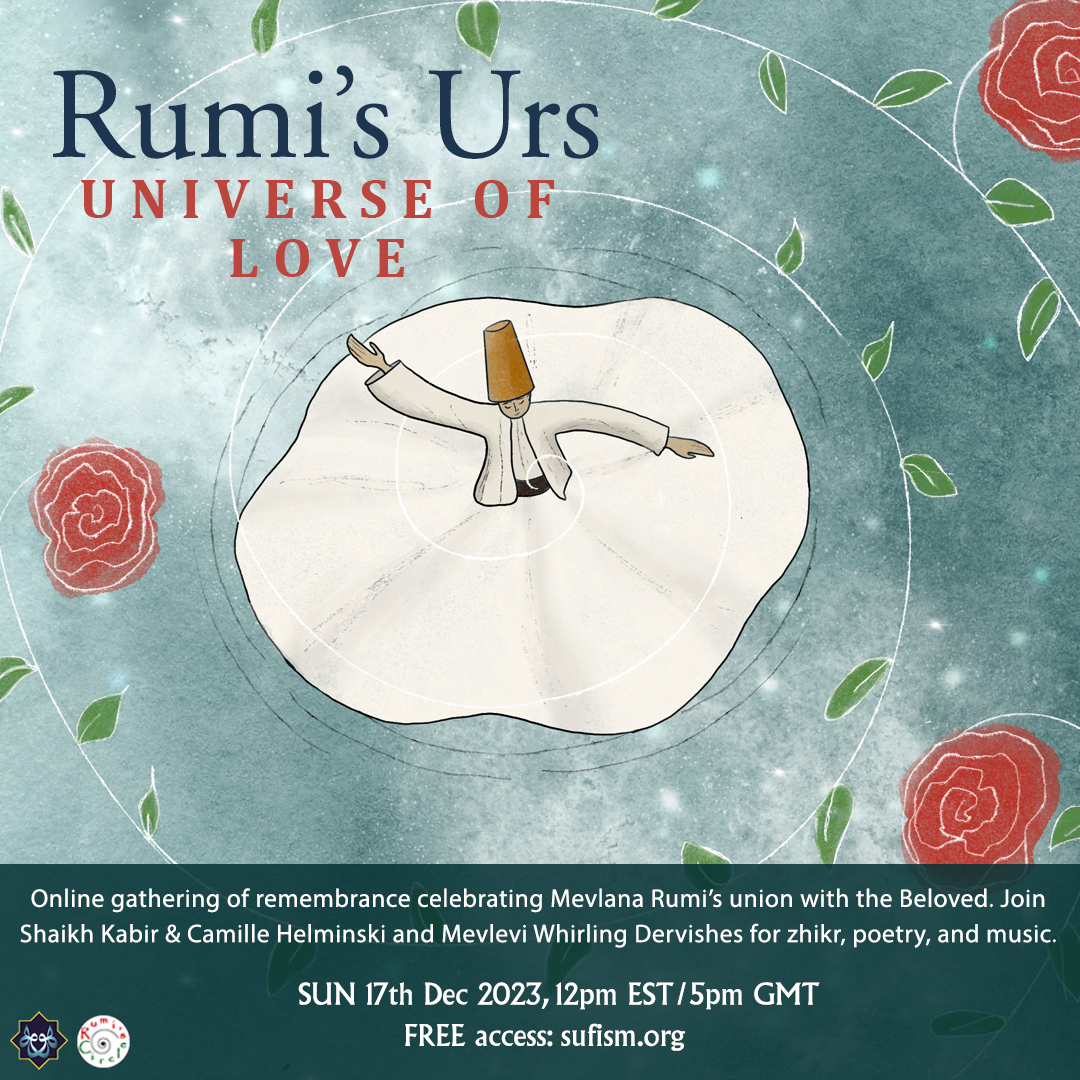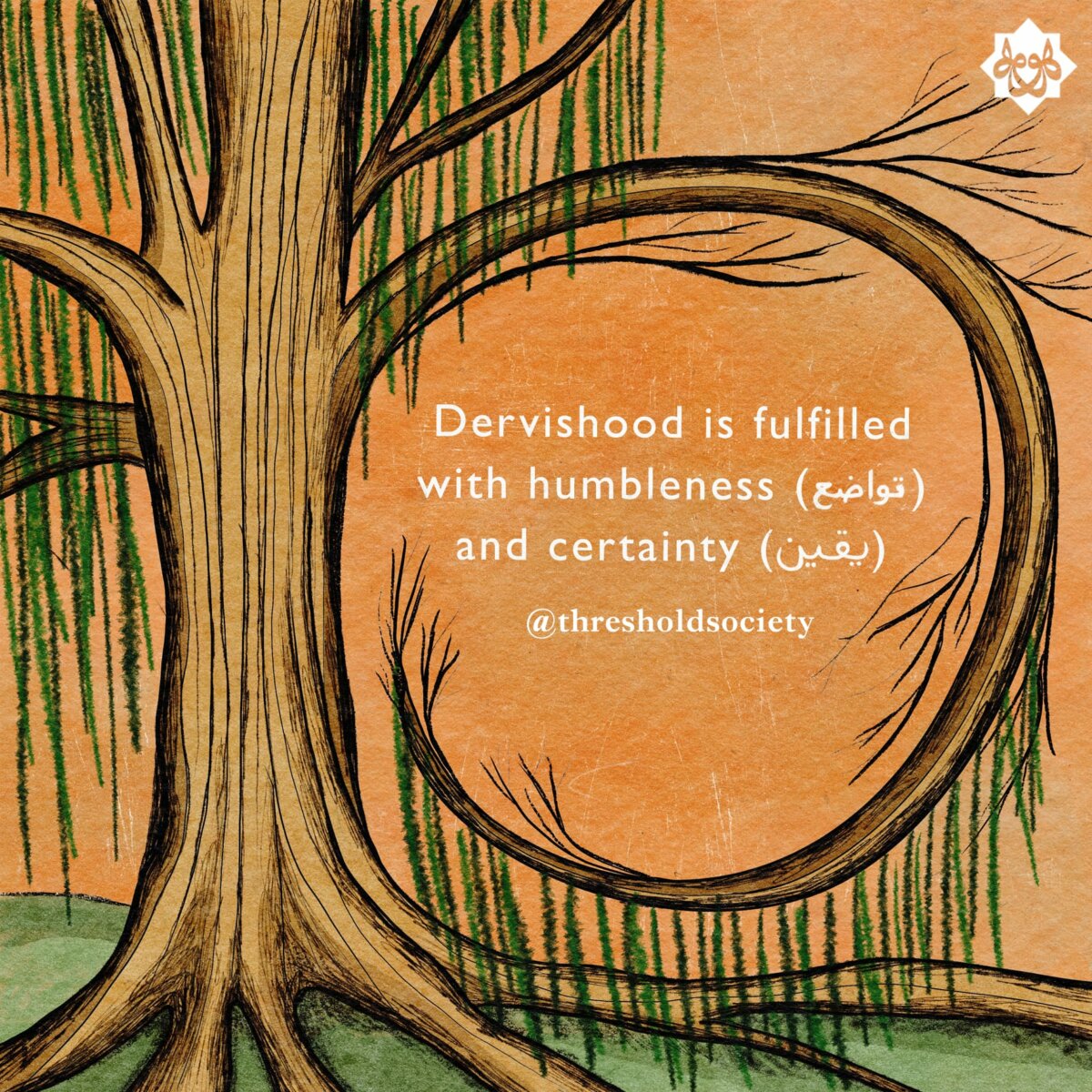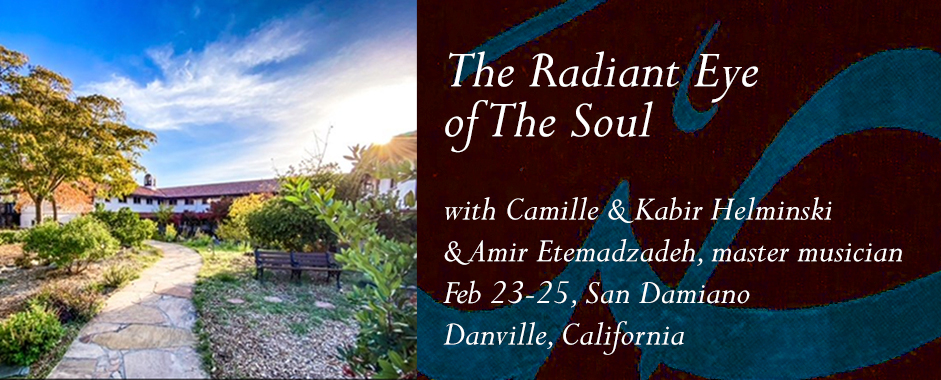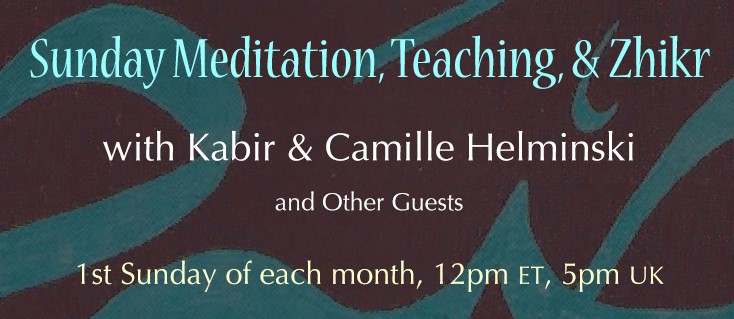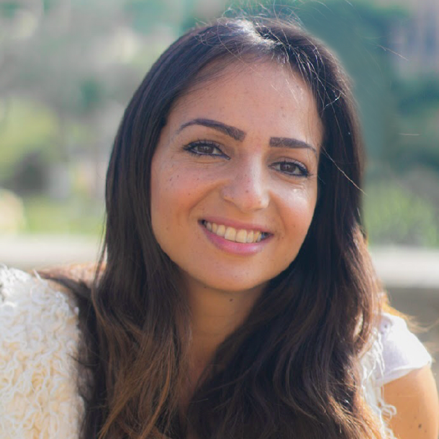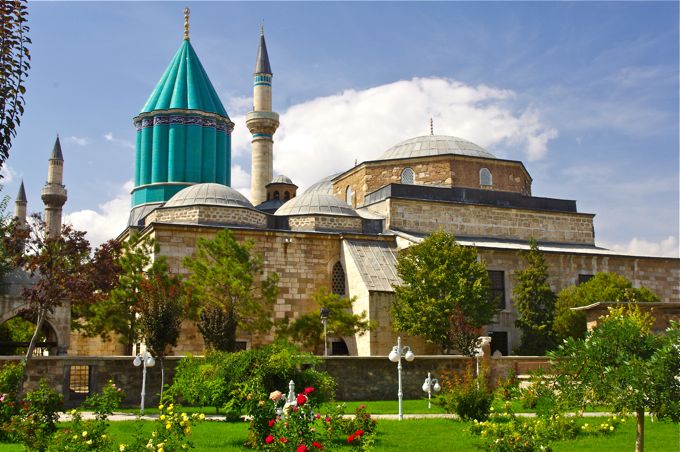|
THRESHOLD SOCIETY NEWSLETTER ~ DEC 2023 |
| |
|
Religion Must Never Be Sectarian |
| |
|
Much of the injustice, oppression, and violence in the world today is rooted in the primal egoistic tendency of one tribe, community, or nation to pursue self-interest at the expense of others. These power games have been the way of the world for a long, long time.
Beyond a certain point, injustice and oppression may evoke the violence of terrorism, typically as a response of the powerless in the face of overwhelming injustice.
Finally, religion and other ideologies may be hijacked to serve a triumphalist agenda, as in the case of radical Islam or radical Zionism.
Violence begets trauma, and trauma begets violence, and violence begets vengeance, and vengeance begets more trauma—an endless cycle.
One can argue whether human beings are naturally cooperative or selfishly aggressive. But most people just want to be free to live their lives. Hatred is learned.
All forms of violence and oppression are licensed by the dehumanization of others. The dehumanizing of others becomes a disease of the soul.
When religion becomes a rationale for aggression, it is not religion. The annihilationist rhetoric of fanaticism betrays the purpose of religion. Authentic religion can only serve humanity as a whole.
As Muslims we assert that the Islamic perspective must never be a sectarian perspective. The rights of Muslims are no more and no less important than the rights of all human beings. It is more virtuous to defend the rights of communities other than one's own. There is less virtue in demanding rights for oneself than in protecting the rights of others.
Those who become enraged by injustice and adopt an aggressive, hostile stance will inevitably create an opposite reaction. Blinded by the self-righteousness of the ego, they fail to see that they are driving away precisely what they intend to achieve.
"Them and us" is a dangerous concept. There's only us. We are one human family.
The saints and prophets, when persecuted for speaking truth, have tried to tell us, "We are the enemy of no one. Those who appear to be our enemies are actually enemies of themselves. Imprisoned in their own selfish illusions and negativity, they harm their own souls and create their own suffering.”
In identifying civilizational values, the place of "Human Dignity" must have a prominent place. The All-Compassionate, speaking in the voice of the Divine "We," says in the Qur'an:
Indeed, We have dignified the children of Adam, carried them on land and sea, nourished them with the pure sustenance of life.
[Qur’an, Surah al-Isra, 17:70]
This verse proclaims that all human beings are honored by God with dignity, with nobility.
Human dignity resides in those essential human capacities that include free will, self-awareness, conscience, empathy, compassion, and self-respect.
Human dignity is expressed in the capacity to govern our selfish impulses and strategies, to counteract our irrational hatred and prejudice, to overcome our fear and anger.
Human dignity is fulfilled in the freedom to travel the land, to express our ideas and beliefs, to be free of coercions, to choose what we do with our own bodies.
Increasingly we are seeing a confrontation between two mentalities: one that is sourced in human dignity and one that is blind to it. It is the contrast between a truly human culture and an authoritarian dystopia, between a culture of dignity and a soulless existence.
We recognize human dignity in our ability to perceive a dimension of values, to sacrifice, to yearn, to aspire, to be in relationship with the mystery of the Sacred. The human being is a creature standing at the threshold between the five-sense physical world and the invisible, transcendent dimension of the heart.
Human dignity is sourced in the sacred and recognized by a sound heart. The cherishing of human dignity, the respect for our spiritual nature, is the remedy for the dehumanization that leads to violence and tyranny.
If we commit to the honoring of human dignity, we can break the cycle of perpetual trauma and discover new dimensions of beauty within our own selves, our communities, and our world. |
| |
|
And so she conceived him, and she withdrew with him to a remote place.
And when the pains of childbirth drove her to the trunk of a palm tree,
she called out, “Oh would that I had died before this,
and that I were forgotten, utterly forgotten!”
Then a call came to her from below her saying,
“Do not grieve, your Lord has made for you a stream flowing out from beneath you.
And shake the trunk of the palm tree towards you,
and it will drop fresh, ripe dates upon you—
so eat and drink and cool your eye.”
[Quran, Surah Maryam 19:22–26]
The Quranic and Biblical accounts of the birth of Jesus differ in their details, but both recount the event with honor and sensitivity as resplendent with God’s Grace and attendance by angels. In the Quran, Beloved Mary is alone during the throes of labor, and reaches out to a palm tree for support; this gentle woman is tested to the edge of endurance, both physically and emotionally as, unsure of what is to come, she struggles, alone, and yet supported by the emerging strength of the palm. As it is storied in the Bible, together with Joseph she finds refuge within the welcoming warmth of a stable, the abode of animals of service, creatures of sustenance. Whether she was alone or in the company of her betrothed, she was reliant upon her Lord, even in the midst of difficulty, trusting in the Breath of knowingness through which she had matured, now witnessing the fulfillment of the Word.
Within the Islamic tradition, it is understood that it was an angel who calls to her to look down and see the spring that has surfaced beneath her, to drink of it “and cool your eye.” The date palm freshens and flourishes, all in a moment, and drops fresh ripe dates upon her. Once again she is provided for through the bestowal of Unseen Grace.
In the Biblical version of the story of the nativity, Mary gives birth in a stable, a simple wooden shelter, or in some versions, a cave (a quiet, safer place of retreat than the bustling caravanserai or inn), where she is welcomed by the animals to share their warmth and refuge. It had been necessary for Joseph and Mary to return to Bethlehem in the winter, because it was the year of the census that occurred every fourteen years under Roman rule; it had to be completed by the end of that December. Since Joseph was from the House of David, they must return to the home of the family lineage, to Bethlehem. From Nazareth to Bethlehem would have been about a week’s journey in those days, so they would have had to set off by mid-December in order to arrive in time.
In the Biblical version, also, the angelic and natural world rise up in support. The mystery of the majesty of the womb of Mary is celebrated with the third joyful rosary remembrance of the birth of Jesus.
A hadith relates several moments in the Prophet Muhammad’s Night Journey (‘Isra) to Jerusalem and Ascension (Miraj) when he is told by Angel Gabriel to stop and offer a prayer, and Gabriel asks him if he recognizes the locations. One of these places Muhammad, peace and blessings upon him, indicates as being “Bethlehem, the place where Isa was born.” In honor of the birthplace of Jesus, the companion of the Prophet Muhammad, Abdullah ibn ‘Amr ibn al-‘As, used to send lamp oil to the churches in Bethlehem (Bayt Lahm), located about six miles south of Jerusalem.
[Selections from The Way of Mary: Maryam, Beloved of God, Chapter V, "Fifth Star of Blessing: Birthing Jesus," by Camille H. A. Helminski] |
| |
|
SUNDAY 17th DEC 2023, 12pm ET / 5pm GMT
Celebrate Mevlana Rumi’s union with the Beloved – the anniversary of his passing into the Unseen – with an online gathering of remembrance. Join Shaikh Kabir & Camille Helminski and Mevlevi Whirling Dervishes for zhikr, music, and poetry on the theme of Universe of Love.
This is an interactive experience. We welcome all friends who may wish to whirl, whether you have robes or not, to join in. You may wish to create some space for turning, perhaps light some candles and have some red roses or rose incense/oil. |
| |
|
Dervishood is fulfilled with humbleness (تواضع) and certainty (يقين).
We welcome your reflections on this theme. |
| |
|
San Damiano Retreat Feb 23-25 |
| |
|
The Radiant Eye of the Soul
Feb 23-25 2024, San Damiano Retreat, Danville, California
with Camille & Kabir Helminski, & Amir Etemadzadeh, master of Sufi music
The amazing soul qualities latent within a human being are begging to be awakened. The spiritual path of Rumi awakens and develops the soul leading to a joyful relationship with the Divine Friend.
Whatever dark curtains seem to drop before our eyes, the radiant eye of the soul is neither deceived nor distracted from the Eternal Presence. We come together to deeply experience and nurture our souls through community, spiritual dialog, prayer, meditation (muraqaba), music, and zikr. All are welcome, especially the young at heart.
All-inclusive from Friday afternoon until Sunday lunchtime.
$550 single ensuite
$510 double/twin ensuite |
| |
|
Dec 3rd
Join us for a monthly online meditation and sohbet with Shaikh Kabir and Camille, and special guests from the Threshold community. Held on the 1st Sunday of every month at 12pm Eastern Time (5pm UK).
Zoom meeting: https://zoom.us/j/435138208
Zoom passcode: threshold
Watch last month's meeting below and see all our videos here.
|
| |
|
Reflection on November's theme: Follow the breath within to a light more fundamental than your thoughts, emotions, or “self.” |
| |
|
~ Jeremy Henzell-Thomas [Wells, UK]
|
| |
|
I feel such an affinity with this theme that I would like to offer some reflections. For several years I have engaged in the regular practice of bringing my attention to the breath, calming my body and stilling my mind, and affirming inwardly that ‘I am present with Allah with my whole self.’ I might have said ‘Allah is present’ rather than ‘I am present with Allah with my whole self’ so as to recognise the absence of myself as a condition for Allah’s presence, but I have chosen to try to reflect the saying of the Prophet Muhammad that ‘he who knows himself knows his Lord.’ I interpret ‘himself’ here to mean the whole self, the ‘complete’ self, the nafs i-safiyya, corresponding to the Station of Beauty (maqam al ihsan), and not of course the egoic compulsive self, the nafs i-ammara, although awareness of that lower self, bringing it into the light, is a pre-condition of self-knowledge.
Occasionally I may alternate ‘Allah’ with one or more of the 99 Divine Names: for example, ‘I am present with Ar-Rahman, the All-Merciful’ or ‘with As-Sabbur, the Most Patient, or Al-Ghafur, the All-Forgiving’, and I endeavour to include all the 99 Names during the week. To that end, Daniel Thomas Dyer’s gorgeous book, The 99 Names of God is always by my side. And let us be aware that the ‘complete self’, though the highest level of the nafs and one which we may consider ourselves to be very far from, is the true Self which resides in all of us, the ‘infinite light of Love’ which Rumi says has been created by God in the ‘black core of the heart’. ‘Everything in the universe is within you,’ he says. ‘Ask all from yourself’ and ‘You were born with wings, why prefer to crawl through life?’
As always, I am impelled to refer to a recent dream which has inspired much contemplation. In this dream I am watching a man who is sitting next to a large broken mirror. He is sitting in deep silence with great presence and stillness. I have the impression that he has been patiently sitting there for a long time. Suddenly, from the heavens there is a brilliant flash of golden lightning that strikes the mirror, instantly and miraculously restoring it to its original perfection. The dream seemed to be telling me that the True Self, the Whole Self, the Adamic Self created by God as a mirror of His own Names and Attributes, can be brought to light when we persevere with our intention to be fully present.
I am reminded of what Fatima of Cordoba, the twelfth-century shaykha of Ibn ‘Arabi said about him:
Ibn al-Arabi is a consolation to me, for he comes to me with all of himself. When he rises up it is with all of himself and when he sits it is with his whole self, leaving nothing of himself elsewhere. That is how it should be on the Way.
A famous hadith qudsi comes to mind, one often related in major Sufi texts from the twelfth century CE and particularly cherished by Ibn ‘Arabi and Rumi: I was a hidden treasure and loved to be known, so I created the creation to be known. Creation, and most perfectly the human being (Adam, the primordial human before the division into male and female), was thus created as a mirror for reflecting the Divine Beauty and Majesty.
But the dream did not end with the flash of lightning, and went on to communicate something of a dilemma, moving on to a large auditorium which reminded me of the Royal Opera House in Covent Garden, London, which I used to regularly attend as a student, having queued all day to purchase one of the 43 standing tickets at the back of the theatre for £1. In the dream, there was a man on the stage holding up the mirror and announcing that a miracle had occurred. I was faced with a difficult choice: should I stay in the shadows in my modest and obscure place at the rear of the theatre or should I come forward and announce that I had been present when the mirror was miraculously mended? Well, I gingerly raised my finger to suggest that I had something to say. With that, the dream ended, but it seemed to be saying something about the Self and the ego. My standing ticket cost £1, a symbol of Oneness. To remain there and not come forward perhaps suggested a state of being silently rooted in the Self without the need to announce anything. On the other hand, to come forward and announce what I had seen could be interpreted as pointing to the need of the ego for approbation. Or did it? Could it not be that it is important to act as witness of a miracle? Is not Ash-Shahid (The Witness) one of the 99 Names? To stand back might not be resistance to the ego, but rather an expression of false humility, itself an expression of the ego.
I often ponder this dream and the quandary it symbolizes, raising as it does testing questions about the nature of the ‘self’.
I will leave it here for my dear readers to reflect further.
~ Jeremy Henzell-Thomas is an independent researcher, writer, speaker, educational consultant, Associate Editor of the quarterly journal Critical Muslim, and former Visiting Fellow and Research Associate at the Centre of Islamic Studies at the University of Cambridge. He was awarded an MBE in the Queen’s Birthday Honours in 2021 for services to the Civil Society and the Muslim Community. |
| |
|
Reflection on November's theme: Follow the breath within to a light more fundamental than your thoughts, emotions, or “self.” |
| |
|
~ Deena Fadel [Cairo, Egypt]
|
| |
|
Before we start our discussion I would like to start with Prophet Muhammad’s prayer of light (peace be upon him):
… O Allah, grant me Light in my heart,
Light on my tongue,
Light in my eyes, Light in my ears,
Light to my right, Light to my left,
Light above me, Light below me,
Light in front of me, Light behind me,
and Light within my self; increase my Light.
[The Mevlevi Wird]
In the mysticism of our unexplainable soul, I always feel the sun resembles the essence of our light. A radiating force with divine energy that can reach infinite lands and countless hearts. Just like our radiant soul, the sun sits within her peaceful sky, then suddenly it’s hit by an outraged storm, extreme thunder, gushes of wind, a waterfall of tears. The sun becomes unseen, and her light becomes diluted.
If every dark cloud resembled an emotion, imagine them crowd around the sun; the cloud of fear, worry, distress, the sound of thunder like the voice of your critique bombards the space with panic. The sun takes a deep breath in and exhales like the softness of the breeze of dawn, and with all compassion she says, “Ya Allah, Ya Rahman” (“O Allah, the Compassionate”)…. Her gentleness holds space for the storm, clouds of fear; she hugs the disturbed turmoil and wipes away the rain with love.
They are all welcomed with peace and enveloped with devotion. She, with unwavering faith, knows they must arrive to embark on their departure. Just as a passing storm whispers its truth before it fades away. We often get stressed that we are trapped within our emotions, turbulent mind, and our heart becomes clouded. We become too harsh on ourselves for feeling down or for simple feeling. Just as any storm arrives to voice a matter, so do your emotions. The darkness is a guest while your light is constant. Welcome in the guest, listen and feel. As Mevlana Rumi mentions: “The wound is the place where the Light enters you.”
The difference here is how long will the storm stay and how intense it is. Our purpose is to radiate light from our essence, to connect with the infinite love of the Divine and allow His light through us. In the Quran, God mentions:
I will make upon earth a successive authority.
[Surah al-Baqarah, 2:30]
How powerful: we represent God here on Earth.
Our destined oath is to breathe in and exhale that Divine light, to really immerse ourselves in the ayah Noor ala Noor (“Light upon Light”—Surah an-Noor, 24:35). The longer we stay in the storm the more we are feeding the diluted self. Nature knows when to come and when to leave: a storm passes, a caterpillar remains in her cocoon for a dedicated number of days, even your own skin knows how to heal—they all surrender. We can get in the way of our own healing by disturbing the process through our prancing thoughts.
Why stay in prison, when the door is wide open?
[Rumi]
For a moment, let’s imagine that clouds of emotions, thunder, have an ego or nafs al-ammarah. The sun could say: “It’s so dark! What are all these clouds doing here…dimming my light!’ The cloud of fear: “I’m terrified, anxious! And I’m here to stay. I have to save you, sun, from doing too much before your rays run out.” The cloud of worry: “Looks like this storm will stay forever. What will I do? Will tears ever stop flowing?”
How do we move from the voice of the ego to the sound of the soul, even in the midst of turmoil? To unlock the gates of the heart we can tune into the Divine’s Names and feel them radiating within our heart and entire being: Ya Noor (O Light), Ya Wadood (O Love), Ya Kareem (O Kindness), Ya Salaam (O Peace).
As Dr. Wayne Dyer quotes Neville in his book Wishes Fulfilled:
The creator has planted within every creature a fragment of himself, a spark, a spirit of the same nature as himself and thanks to spirit, every creature can become a creator.
To be that creator or God’s khalifa (representative), we can mirror God’s characteristics, to yourself first, then out to anyone around you. Your breath becomes the love angel, a peace angel, a kindness angel.
Calling upon all these angels, then you can create from that infinite source a flow of radiant energy, away from your inner critic, respecting emotions and thoughts, allowing them through, yet clearing the channel to hear and to act.
I am yours. Don’t give myself back to me.
[Rumi]
There is a Divine connection between our breath and inner light. It’s a sacred dance that’s available for free at any moment of time. Just like your heart can dial God’s number any second of the day, your body can breathe deeply filling every cell with oxygen and with that purifying light.
We breathed into him from My Spirit.
[Quran, Surah al-Hijr, 15:29]
This ayah envelopes the golden truth: the Divine breath is within us. As we breathe, let’s bring our attention to this sacred gift. We can have—and give—unlimited love, abundance, kindness, power. It has been installed within our soul to walk our path with light and truth.
Within the holy month of December, lets draw inspiration from Beloved Mary:
She dropped down from her worrisome mind, to her Holy womb.
She trusted the process, cleared the grey clouds of thought and walked her destined path.
And a miracle was born.
What do you hold in your womb that you can bring forth…?
Noor ala Noor (“Light upon Light”).
* Translations included by Deena from the Quran are from Quran.com; "The Light Prayer" portion is from The Mevlevi Wird: The Prayers Recited Daily by Mevlevi Dervishes, p.66-67. Other translations included are as she has remembered them by heart.
~ Deena Fadel is a certified holistic coach, international artist, and creative writer. She integrates life coaching, somatic body movements, meditation and spiritual guidance. Her passion lies in helping individuals discover their soul's voice, empowering them to live authentically connected to the Divine. You can view her art here.
|
| |
|
The Glorious Morning Light |
| |
|
To support our hearts and bring light in difficult times, we offer Camille's Qur'an recitations to accompany your spiritual practice. Click on the cover below. |
| |
|
The Threshold Society, rooted within the traditions of Sufism and inspired by the life and work of Mevlâna Jalâluddîn Rumi, is a non-profit educational foundation with the purpose of facilitating the experience of Divine Unity, Love, and Truth in the world. Sufism is a living tradition of human transformation through love and higher consciousness. Our fundamental framework is classical Sufism and the Qur’an as it has been understood over the centuries by the great Sufis. The Society is affiliated with the Mevlevi Order, and offers training programs, seminars and retreats around the world.
Each month we intend to highlight an article about our lineage and its principles. This month we offer: Suggestions for Practice Within the Threshold Society & The Mevlevi Tradition
Most people who come to Sufism have preconceptions as well as questions about what Sufism is. What does the practice consist of and how will I learn and develop? Is there a detailed curriculum? Or hidden knowledge? What should I expect of my shaikh and what kind of relationship is possible? Some people might imagine that the shaikh has a detailed, objective technical knowledge of various inner states, spiritual energies, planes of reality, spiritual powers, etc. While there is some truth in this, it has been our experience that among the best teachers these subjects are seldom emphasized or talked about directly. An emphasis on secret, privileged knowledge, or encouraging a mystique or building a cult of personality, or intimations of end-time scenarios, have proven time and time again to be counter-indicators of spirituality. In other words, the more such tendencies surround a teaching, the less likely it is that the teaching will be balanced and authentic. If we look to the Qur’an and the example of the Prophet Muhammad, we see a sane and balanced presentation of the Way. Our approach, therefore, places a strong emphasis on developing our capacities for presence, remembrance, service, and humility.
[Read more…] |
| |
1st Sunday of every month: Online Meditation, more details (KC)
Dec 17: Rumi's Urs online celebration, more details (KC)
Feb 23-25, 2024: Retreat with Kabir & Camille, San Damiano, Danville, California. More details (KC)
Mar 12: Ramadan
Apr 9: Eid al'Fitr
Jun 17: Eid al'Adha
Events with Kabir (K) & Camille (C)
|
| |
Threshold Society
1288 Cherokee Rd Louisville, KY 40204
© Threshold Society. All rights reserved.
| |
|
